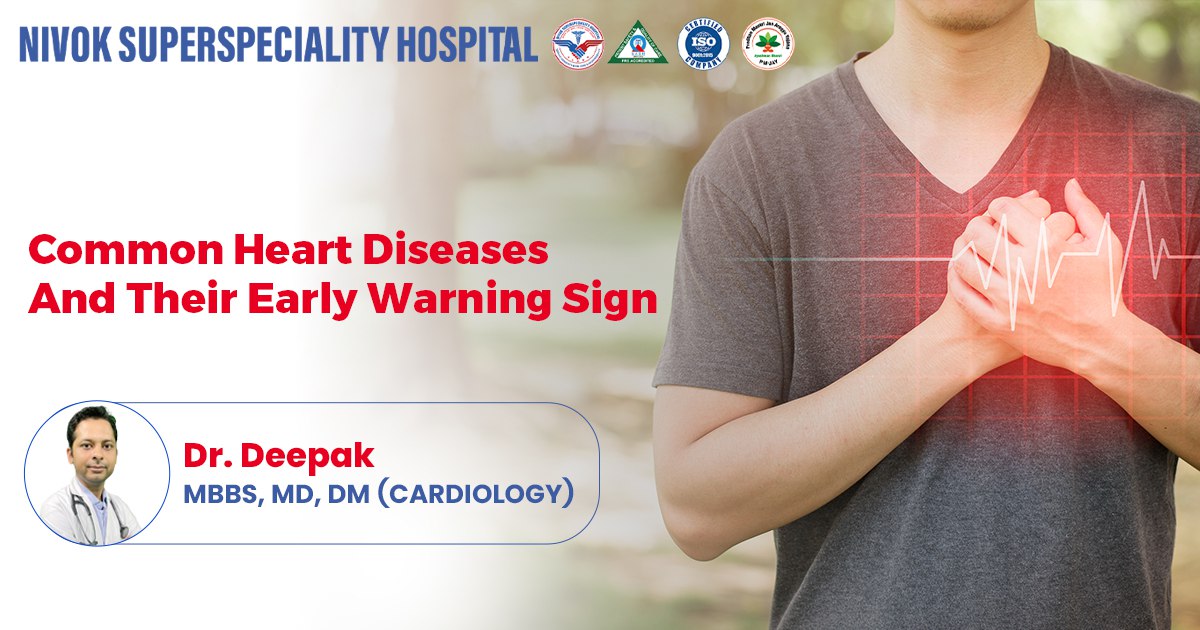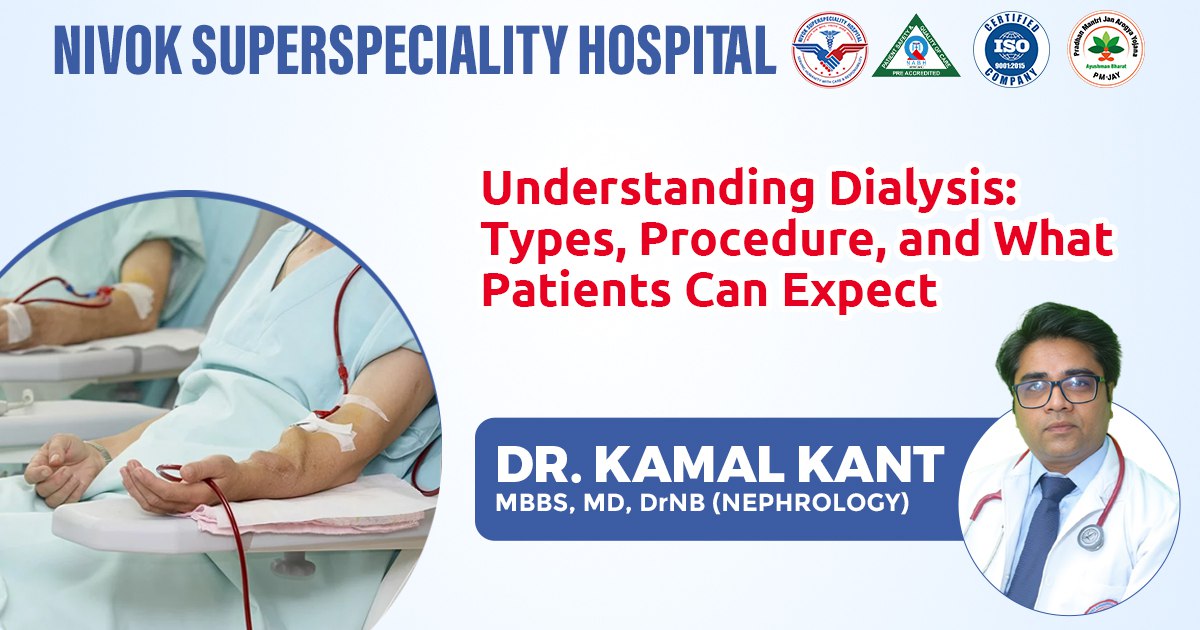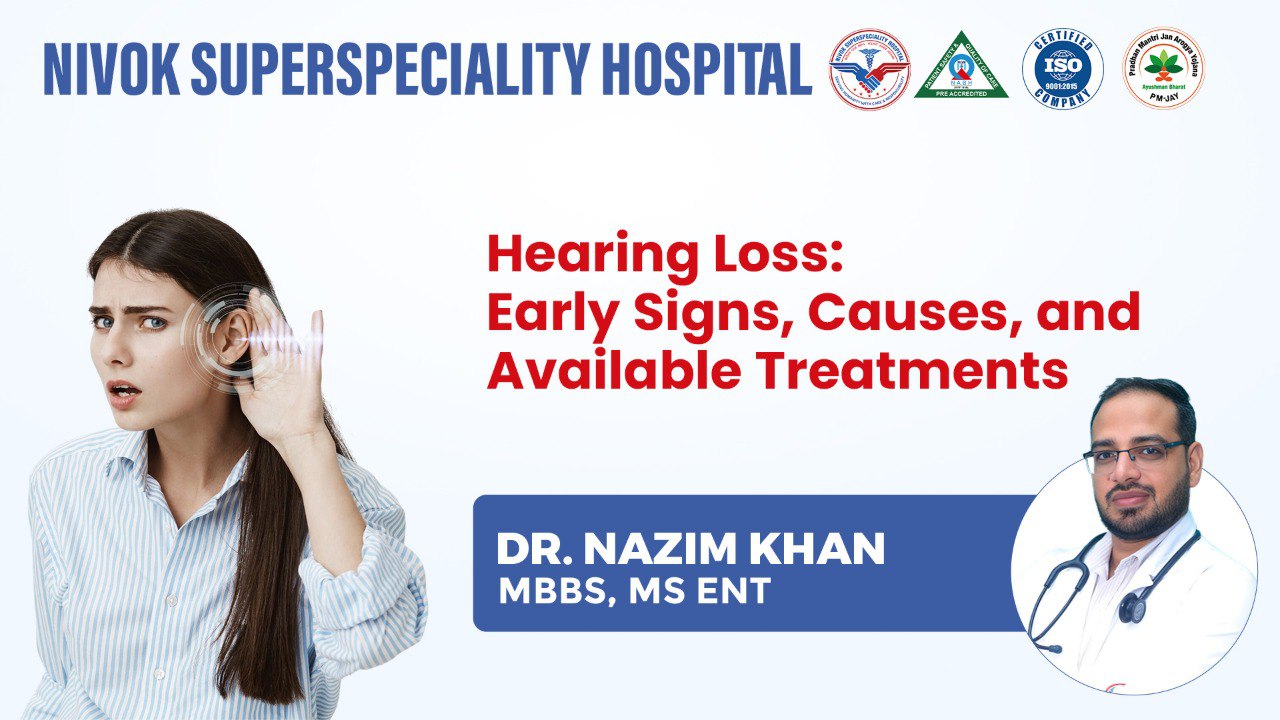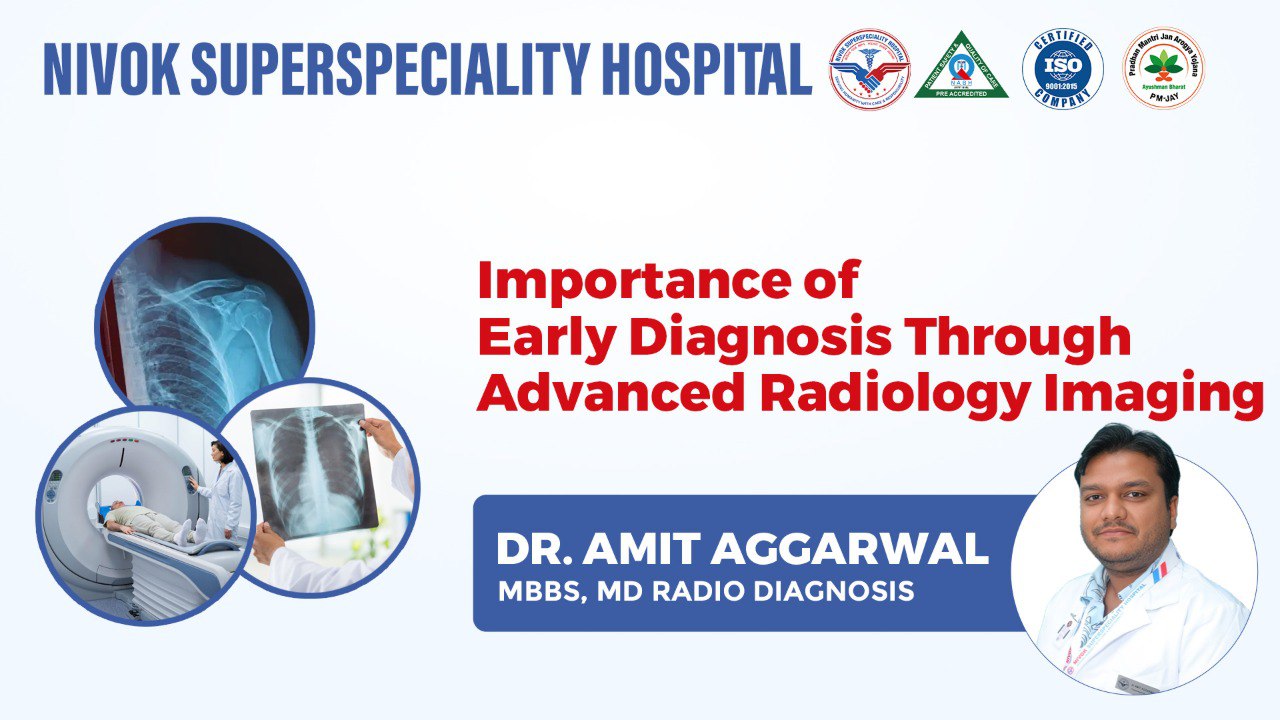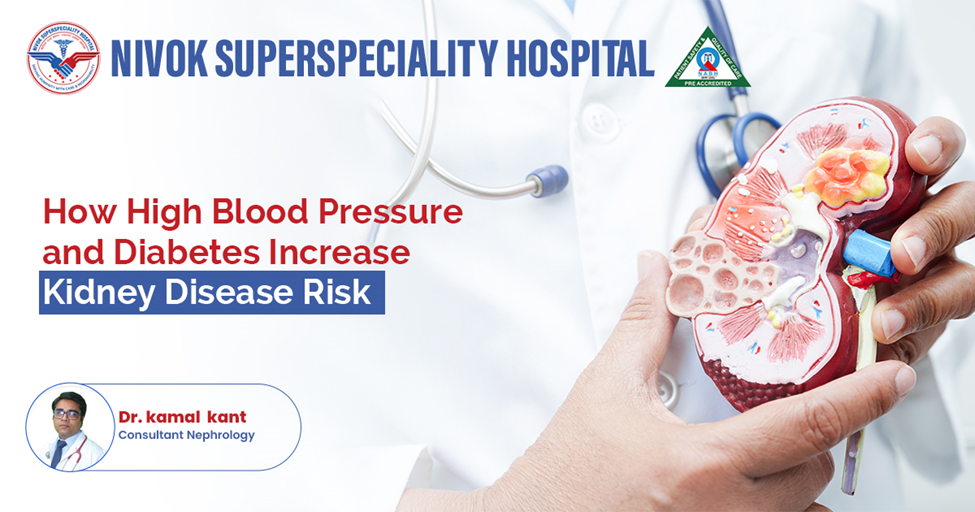
How High Blood Pressure and Diabetes Increase Kidney Disease Risk
Kidneys are vital organs that filter waste and excess fluids from the blood, maintain electrolyte balance, and support overall health. However, certain chronic conditions like high blood pressure (hypertension) and diabetes can put significant stress on the kidneys, increasing the risk of kidney disease. Understanding this link and taking preventive measures is crucial to maintaining kidney health.
At Nivok Superspeciality Hospital, patients in Modinagar and Muradnagar can consult Dr Kamal Kant, recognised as one of the top specialists at the Best Kidney Hospital in Modinagar and Muradnagar, for expert guidance on preventing and managing kidney-related issues.
How High Blood Pressure Affects the Kidneys
High blood pressure forces the heart to work harder to pump blood through the arteries. Over time, this increased pressure can damage the small blood vessels in the kidneys, reducing their ability to filter blood efficiently. Damaged kidneys, in turn, struggle to regulate blood pressure, creating a dangerous cycle that can eventually lead to chronic kidney disease (CKD).
Signs to watch for:
- Swelling in the hands, feet, or face
- Fatigue and weakness
- Frequent urination, especially at night
- Persistent headaches or dizziness
Regular blood pressure monitoring and timely intervention are essential to prevent kidney damage caused by hypertension.
How Diabetes Impacts Kidney Health
Diabetes, particularly when blood sugar levels are poorly controlled, can harm the kidneys’ filtering units (glomeruli). High glucose levels damage these tiny structures, leading to a condition known as diabetic nephropathy—a leading cause of kidney failure worldwide.
Symptoms may include:
- Protein in the urine (proteinuria)
- Swelling in extremities
- High blood pressure
- Fatigue and nausea
Maintaining blood sugar within a healthy range, along with regular kidney check-ups, can help prevent or slow the progression of diabetic kidney disease.
Combined Risk: Diabetes and Hypertension
Having both diabetes and high blood pressure significantly amplifies the risk of kidney disease. The combination accelerates damage to kidney blood vessels and filtering units, making early detection and intervention even more critical.
At Nivok Superspeciality Hospital, Dr Kamal Kant offers comprehensive screening and treatment plans for patients with these risk factors. Through personalised care, routine monitoring, and advanced treatment options, the hospital ensures that patients receive timely support to protect kidney function.
Prevention and Management Strategies
- Regular Check-ups: Monitor blood pressure, blood sugar, and kidney function regularly.
- Healthy Diet: Reduce salt intake, avoid processed foods, and consume a balanced diet rich in fruits, vegetables, and lean proteins.
- Stay Hydrated: Adequate water intake helps the kidneys flush out toxins.
- Exercise: Moderate physical activity helps control blood pressure and blood sugar.
- Medication Adherence: Take prescribed medications for hypertension and diabetes as directed by your doctor.
- Avoid Smoking and Alcohol: Both habits can worsen kidney damage and cardiovascular risk.
Final Thoughts
High blood pressure and diabetes are silent threats to kidney health, often progressing without noticeable symptoms until significant damage has occurred. Early detection, careful monitoring, and lifestyle adjustments are key to preventing kidney disease and maintaining overall wellness.
For individuals in Modinagar and Muradnagar, Dr Kamal Kant at Nivok Superspeciality Hospital, recognised as the Best Kidney Hospital in Modinagar and Muradnagar, provides expert care to manage these conditions effectively and protect kidney health. Regular consultations, personalised treatment, and a proactive approach can make a meaningful difference in long-term kidney function and quality of life.
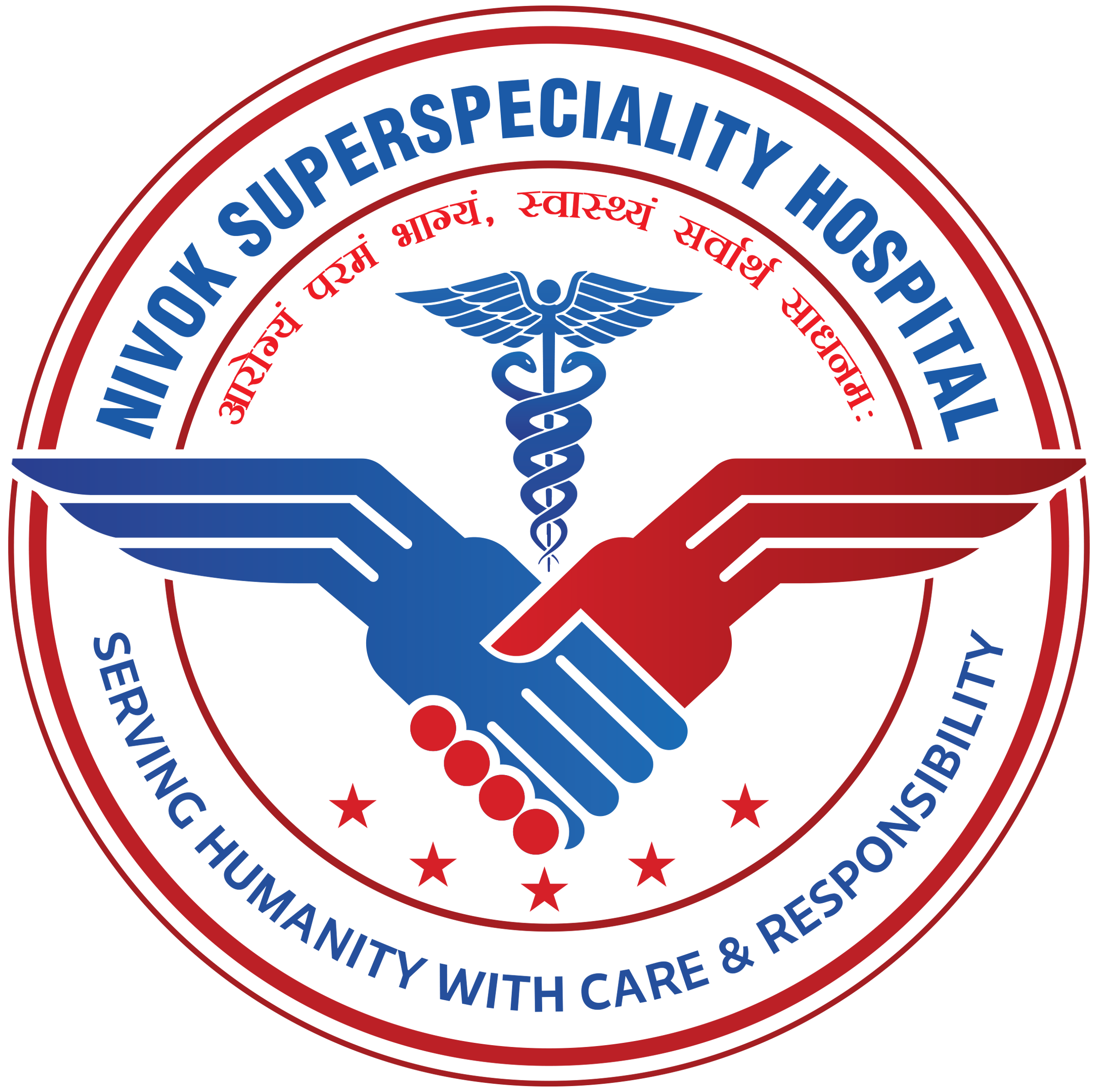

.jpg)



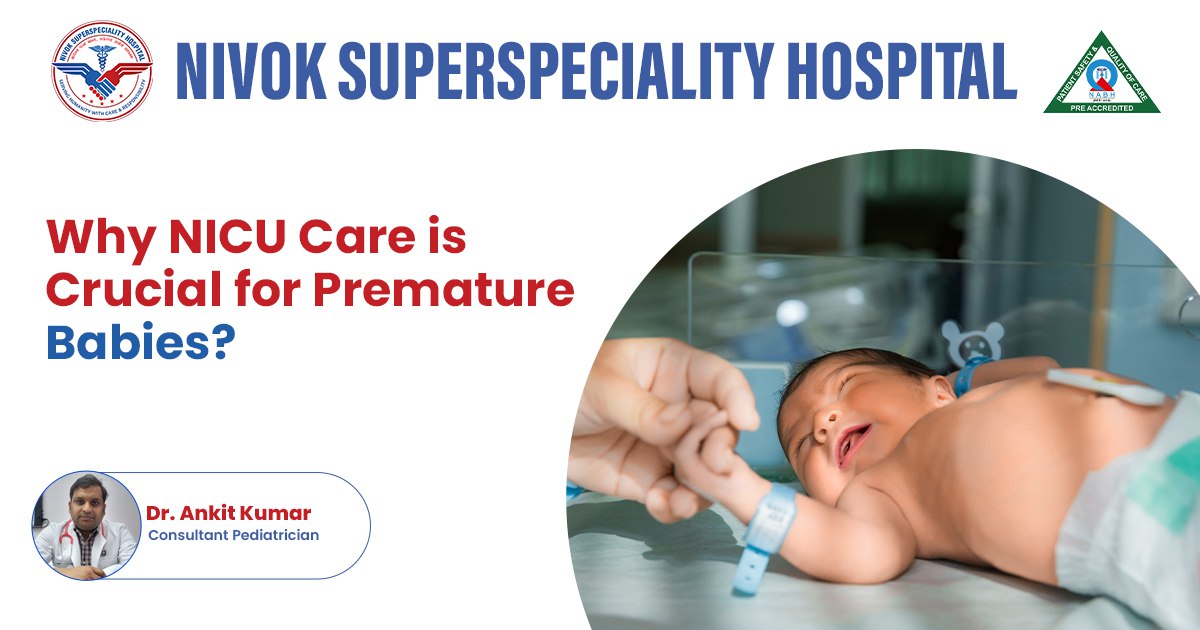
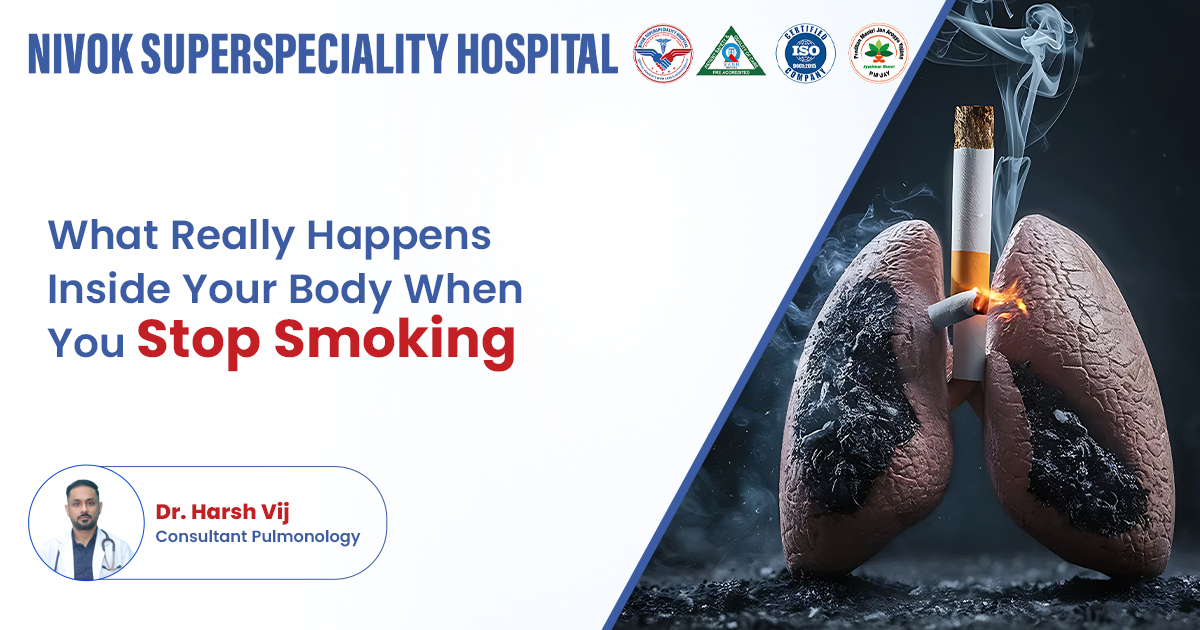




.jpg)


.jpg)








